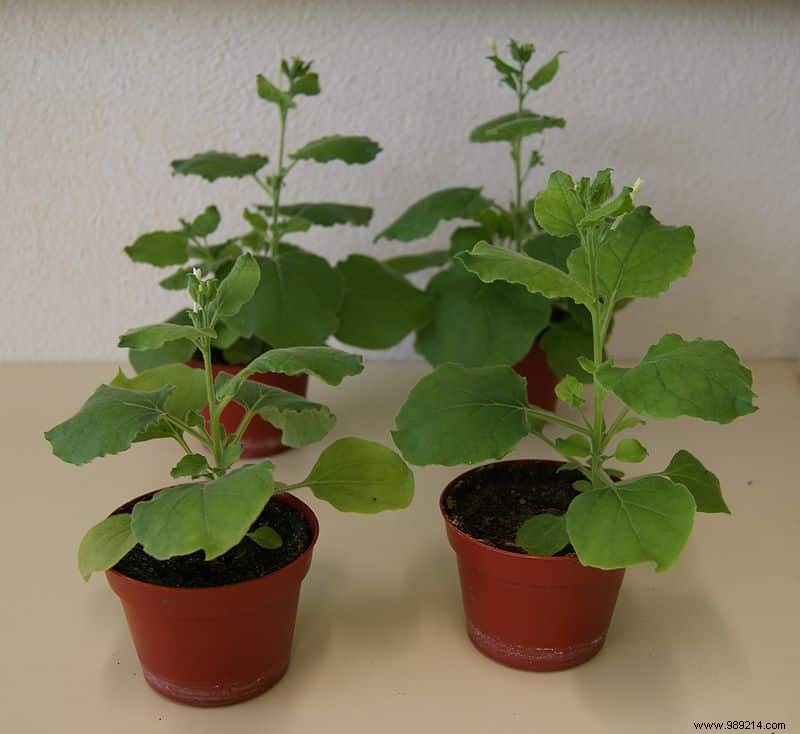Even today, part of the population is struggling to get vaccinated. However, a new vaccine could change that. A Quebec company manufactures a vaccine whose production is done using plants.
Whether in France, Germany or Canada, many people still hesitate to get vaccinated . This is largely due to a distrust of messenger RNA vaccines and their possible side effects. And although there are now more traditional vaccines , the situation does not change. A prepublication on the medRxiv platform on January 26, 2022 nevertheless gives the details of a brand new vaccine which could perhaps change the minds of vaccine hesitants. Indeed, researchers from the Quebec company Medicago use plants to produce it .
According to them, using plants makes it possible not to work with the living virus, because only the genetic sequence is used. The plant in question is none other than Nicotiana benthamiana (see photo below), a cousin plant of tobacco usually growing in Australia. The latter is usually considered a weed. However, it makes it possible to produce recombinant proteins with good yield.

After cultivation in the greenhouse, researchers use a bacterial vector (Agrobacterium tumefaciens) . It turns out that this bacterium has the ability to transfer its genetic material in plant cells. Thus, the researchers inject into the bacterium a plasmid containing the gene coding for the Spike protein of the coronavirus. The plants are then bathed in a kind of tank and by creating a vacuum, the researchers cause the release of the air contained in the leaves. Once the void is filled, the leaves absorb the bacterial solution. This is to deceive the cellular machinery of the plant in order to make him believe that the genetic material injected is indeed his.
After realizing that it is foreign material, the plant destroys it. Meanwhile, researchers collect and purify virus-like particles which are found in buds outside the cells. However, they resemble the virus because of the presence of Spike proteins, but are not infectious, because they do not have genetic material. After the leaves are harvested, the particles are released using enzymes capable of digesting the cellulosic membrane cells.
This production technique has been around for three decades and has already made it possible to produce vaccines for hepatitis B and the human papilloma virus (HPV), among other things. For the researchers, the interest lies in the fact that our body receives the Spike protein directly , so that our cells do not need to produce it. Plant-based production also takes only about a week and can be started at any time. In addition, the effectiveness of the vaccine against several variants of the coronavirus makes him a serious candidate. Medicago hopes to get the vaccine licensed quickly and begin large-scale pre-market production.